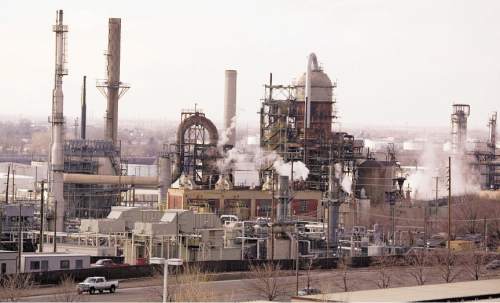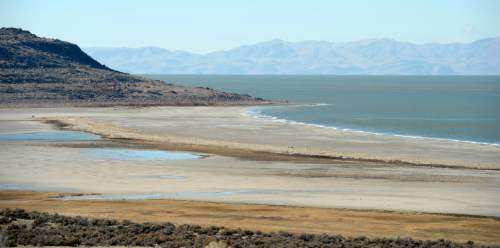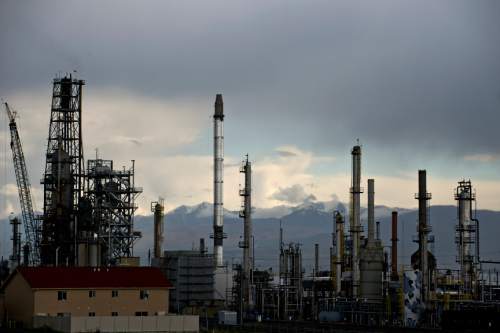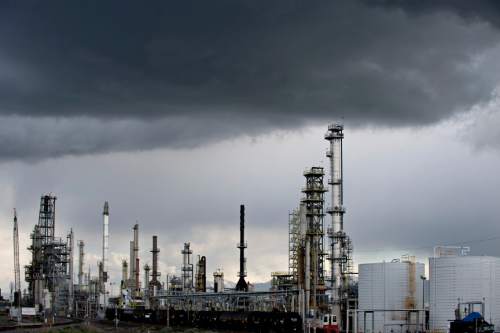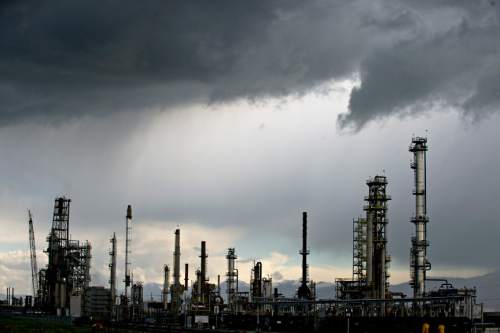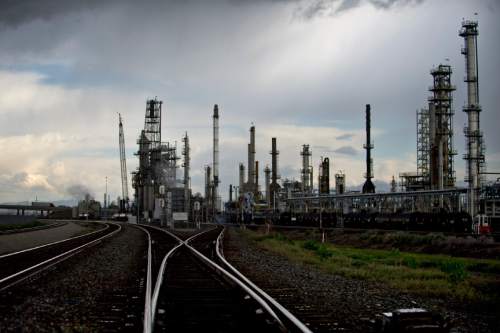This is an archived article that was published on sltrib.com in 2016, and information in the article may be outdated. It is provided only for personal research purposes and may not be reprinted.
Environmentalists from Utah will join nearly a dozen other advocacy groups in a nationwide effort to fight the Environmental Protection Agency's newest rules for oil refinery emissions, which they say include loopholes that allow episodes of uncontrolled pollution.
The final version of the refinery rule included a line that would exempt the pollution released during mechanical or electrical failures from the new regulations — language that was not part of the drafts presented to the public, said Tim Wagner, executive director of Utah Physicians for a Healthy Environment.
"While we weren't completely satisfied with the rule that was passed late last fall, there were certainly some major provisions that we were glad to see come through," including restrictions on emissions related to malfunctions and flare-offs, Wagner said. "When the rule was finalized and published, some of the environmental groups questioned things that went into the final rule that we didn't think were going to be there."
Utah Physicians signed on to represent Utah in a multi-state lawsuit filed Feb. 1 against the EPA. The lawsuit alleges that the agency created loopholes that would allow the release of emissions that would normally be considered illegal. The environmentalists are now waiting for a response from the EPA.
"The EPA came in after the fact and made a bunch of changes to the original rule that went out for public comment," Wagner said. "This was obviously very complicated, but you put everything in the rule so the public can comment on it. You don't wait until after the public comment to change it."
Utah Physicians has focused its legal actions on the regulation of Utah's refineries. Wagner said the group was concerned about the health of the communities that have grown up in close proximity to the refineries — some neighborhoods run right up against refinery fence lines. Nationwide, he said, these "fence line" communities — many of which house low-income, disabled or otherwise disadvantaged populations — bear the brunt of the health outcomes associated with refinery emissions.
"We strongly believe that no matter who lives next to the refineries, their health is just as important as everyone else's," Wagner said.
The uncontrolled releases associated with mechanical and electrical failures can become significant events with serious health consequences for the surrounding communities, Wagner said.
Utah's refineries average about five emission episodes related to electrical failures per year, according to Donna Spangler, a spokeswoman for the Utah Department of Environmental Quality.
The original set of refinery regulations, finalized in September 2015, put additional limits on certain toxic emissions from refineries, required more controls for emergency emissions and flares, limited the number of permissible emergency events, and for the first time required refineries to monitor "fence line" emissions to better determine the overall composition of pollution related to the site.
Refineries were originally expected to comply by 2018, but the EPA has since begun the process to delay the rule's implementation date.


